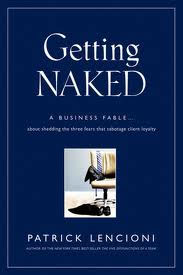
NOTE FROM KATHRYNYear Seven is done! I’m back from my annual canoe trip down the Restigouche River in New Brunswick. It’s amazing how the river changes each year; deeper in some spots, new shorelines in others, cool, lazy pools where there was rushing water last year. Change keeps it interesting. We watched salmon jumping, bald eagles soaring, and I still don’t believe there are any moose in New Brunswick. I always comment on the ‘Beware of moose’ signs along the highway and state categorically that, "until I see a moose, they don’t exist." It occurred to me that if I could just carry the peace of mind and rejuvenation that I feel every year on the river, my life and work would be easier. Hence, this month’s article is entitled with a catchphrase from Arpin, the man who runs the canoe rental shop and ferries our truck to the Rafting Grounds, thirty five miles down river where it will be waiting for us when we get off the river in four days time. |
"IF YOU ARE SMART, YOU WON’T HAVE TO WALK......MUCH!"The water level on the Restigouche drops as summer progresses. If you don’t have your wits about you, you end up dragging the canoe and its contents across the shallow parts. By mid August, you have to be brilliant to avoid this. Needless to say, there were a couple of times when we had to drag our canoe. Here’s three things I want to remember. 1. The current is your friend. You can paddle hard and not get very far, or you can notice where the water is flowing and glide along with a few simple strokes. When the river is wide and then quickly narrows as it winds around an island, there’s lots of water that has to press through a narrow space. If you find the sweet spot, you’ll glide right through, moving quickly with ease and grace. You have to stay alert so you will know early enough to navigate to sweetness. If you miss it, you may get stuck or have to paddle a whole lot harder. When managing projects, you should know what’s up ahead and if you prepare adequately the work is easier and runs smoothly. But you have to be watching! Do you have the resources you need? Have you scheduled them to take advantage of the easy path? Projects have a life blood, just like the river. I suspect many of them have a current as well; a current comprised of culture, relationships and well honed soft skills. 2. The view from the bow is entirely different than the view from the stern. We call the person sitting in the bow ‘Princess’ and the person sitting in the back of the boat, ‘the Queen’. Princesses are tasked with pointing out where the sleepers and potentials are. It makes sense. Sitting in the bow seat gives the Princesses an unobstructed view. If the Princess tells the Queen what lies ahead, then the Queen can steer accordingly. ’Sleepers’ are large boulders on the bottom of the river that can damage your canoe or cause you to tip if you hit them. On either side of the Sleeper the water moves fast. By just missing the sleeper, you get a free ride. If you hit it, you’ll likely leave a little red paint behind. Potentials are possible sleepers. Depending on the water level, they may or may not behave like a sleeper. From the stern, the Queen’s view is obstructed by the Princess. Imagine that! The Queen can’t get a clear picture of where she should be going and yet it is her job to steer. The Queen has to rely on what the Princess tells her. But, if the Princess fails to communicate where the sleepers are, then all wind up in the river. It’s almost as though each can see half of the field, but the catch being that what each sees looks very different. You have to work together. Project sponsors are much akin to the Queen. They provide general guidance and need to know when something is coming up that is beyond the project manager’s control. If the project manager fails to communicate that there’s ‘a sleeper a 12 o’clock’, then the sponsor can do little to help them. Lines of communication have to be open in both directions and when the water is moving fast, you have to be absolutely clear about what is going on. The sponsor can’t see the detail when they are focused on the big picture. They are there to make sure that the project delivers benefits and value. 3. Camp fire— a time for gazing at the stars, laughing about highlights of the day and being thankful for shared camaraderie. Have you ever seen the Big Dipper dip? High, glacial carved hillsides flank either side of the river. The night sky is magnificent. We easily spot the North Star, Orion, the Milky Way, the Big Dipper, the space station, and several satellites. Over a few hours, the rotation of the earth makes the stars appear to move. After a few hours, we noticed the Big Dipper had dipped down below the hillside. A sure sign that it was time for bed. This year I was OBLIVIOUS. We ran out of propane and so I was making coffee on the campfire. As I offered to help take down a tent, my tent mate calmly said, "The handle on the pot of water is on fire." That evening, at campfire, she poured herself a tin cup of Scotch and placed it on the river stones at her feet. Before she had her first sip, I knocked it over. Well it was dark and I didn’t see it on the ground, okay? Before bed, I went back into the woods to do what bears do in the woods. Unbeknownst to me, I stepped in it. I discovered it when I got in the tent and accidentally smeared it on my tent mate’s sleeping bag. Oops! Then to completely ingratiate myself, I snored the whole night long and kept her awake while I slept the good sleep. Needless to say there was much laughter all the next day. If I had been trying, I couldn’t have done it better. Next year, I am to bring my own tent. Seven years ago, the four of us barely knew each other. After spending one week a year together we are fast friends. We talk and share openly. We have supported each other through thick and thin—marriage breakups, an accident resulting in a brain damaged child, financial busts and booms, parental deaths, affairs of the heart, our children’s weddings, the first grandchild and more. We know each other better than most. And most of all, we know that we are there for each other. How do I say it? What’s spoken on the river, stays on the river. I am deeply grateful for these women in my life. Campfires are like milestones. We start each day, knowing that we have a certain distance to travel and that certain things must be accomplished. We talk about what we did well, what could be done better next time, and what lies ahead. We communicate with each other. If phase end reviews were less about finger pointing and more focused on team building, our projects would be better. At your next phase end review, try listening a little harder and sharing a little more openly. It takes courage, trust, and respect to say what needs to be said. Think about what you can share and how you can contribute to the team and the project. Think about what is reasonable to expect from your sponsor and your team mates. Not everyone has a team mate that can laugh at spilt Scotch. |
TIPS AND TWEETSTIPS FROM KATHRYN 1. Plan to take one week of vacation or at the very least a long weekend every quarter. Do something that is not work related that you enjoy immensely. 2. Read a book just for pure pleasure. Although I typically read a business book every couple of weeks, I am proud to admit that I’ve gobbled up more than one vampire book this summer. I’m planning to read the ‘Dragon’ trilogy next. 3. Every day, build a little time in just for you. Even a simple fifteen minute walk around the block will do the trick.
TWEET OF THE MONTH
Follow our tweets @projectstrategy |
|
Communi-Kate is a free, monthly newsletter on improving bottom line results through better management of projects, programs, and portfolios. Back issues can be downloaded for free at http://www.pottruffconsulting.com. Kathryn Pottruff is a senior business executive and President of Pottruff Consulting Inc. Working with individuals and organizations, we drive profitability by improving how projects, programs, and portfolios are managed. We work with our clients to establish processes, systems and tools that deliver value and build competitive advantage. In short, we transform paralyzing complexity into dramatic results! Kathryn Pottruff, President Pottruff Consulting Inc. _______________________________________________ |

|
